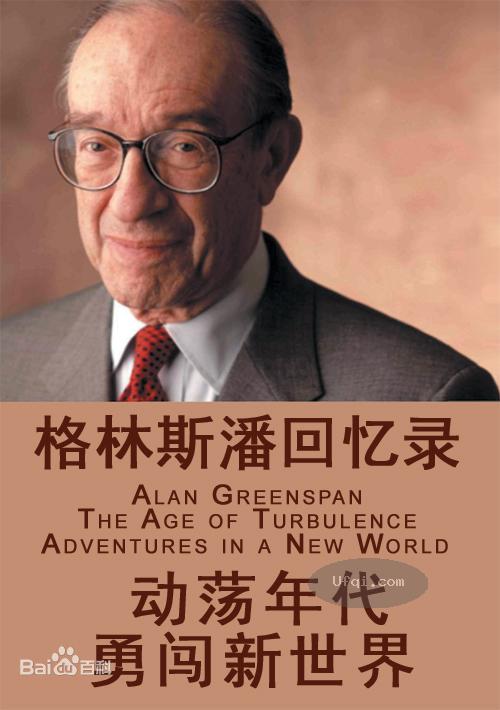


2023-05-16 , 8782 , 104 , 125
美联储主席艾伦格林斯潘回忆录——动荡年代:勇闯新世界-the age of turbulence-39
Though I hadn't put it in so many words, the hard truth was that Reagan had borrowed from Clinton, and Clinton was having to pay it back.
There was no reason to feel sorry for Clinton—these very problems were what had enabled him to defeat George Bush. But I was impressed that he did not seem to be trying to fudge reality to the extent politicians ordinarily do.
He was forcing himself to live in the real world on the economic outlook and monetary policy. His subsequent decision to go ahead and fight for the deficit cuts was an act of political courage. It would have been very easy to go the other way. Not many people would have been the wiser for a year or two or even three.
I took one other step to help the deficit hawks—I advised Bentsen on how deeply I thought the deficit would have to be cut in order to convince Wall Street and thereby bring down long-term interest rates.
"Not less than $130 billion a year by 1997" was his shorthand description of what I said.
Actually the advice I gave him was more complex. I sketched out a range of possibilities, with a probability attached to each—all the while carefully emphasizing that the substance and credibility of the program would be more important than the numbers. But I understood when he finally said,
"You know I can't work with something this complicated."
The figure he extracted made its way to the president and had a powerful effect. Within the White House, $130 billion became known as the "magic number" that the deficit cuts had to hit.
The budget was major news when it finally appeared. "Clinton Plan to Remake the Economy Seeks to Tax Energy and Big Incomes" was the banner headline of the New York Times the morning after Clinton's speech.
"Ambitious Program Aims at a 4-Year Deficit Cut of $500 Billion."
USA Today declared "A Battle Launched" and described Clinton's proposals as "a five-year package of pain." The media coverage focused mainly on whom the cuts would hit (every constituency except poor households—the plan put burdens on the rich, the middle class, retirees, and business).
147
Interestingly, the public reaction was initially favorable: polls showed Americans
unexpectedly receptive to the idea of making a sacrifice to put the nation's house in order.
Most new presidents get a honeymoon from Congress, but Clinton got a trench war. Despite the budget plan's initial popularity a majority of congresspeople hated it—not surprisingly, since it aimed at abstract, distant goals and offered no new highway projects, weapons programs, or other lucrative goodies to bring home to constituents. I think Clinton was jolted by the degree of resistance. Republicans rejected the budget outright and many Democrats rebelled, and the debates dragged on well into the spring.



Even though Democrats held a 258-177 majority in the House, there was serious question whether the budget would pass—and its prospects in the Senate looked even worse. The conflict extended to within the White House, where key people were still pushing for an agenda less compatible with Wall Street. One was Clinton adviser James Carville, who famously wisecracked, "I used to think if there was reincarnation, I wanted to come back as the president or the pope or a .400 baseball hitter.
But now I want to come back as the bond market. You can intimidate everybody." The discord,
which was widely reported in the media, made Clinton look weak,
and his initial popularity melted away.
By late spring his approval rating sank to an abysmal 28 percent.
The president was in a funk when I saw him again on June 9.
The House had finally passed his budget two weeks earlier—by a single vote.
And the fight had only begun in the Senate. I'd gotten a call from David Gergen, Clinton's counselor. "He's distressed," he said, and asked if I could come buck the president up. I'd known Gergen for twenty years, as an adviser to Nixon, Ford, and Reagan. Clinton had recruited him partly because he was a balanced, nonneurotic Washington pro, and partly because he was Republican—the president was hoping to solidify his image as a centrist.
When I went to the Oval Office that morning, you could see that people were under strain. Word had it that they'd been working pretty much around the clock, even Bentsen, who was seventy-two. (Andrea confirmed this; she was now NBC's chief White House correspondent.) They'd been going back and forth with Congress, trying to get the numbers to work,
148
A DEMOCRAT'S AGENDA
and doubtless felt as if they were up against an impossible problem. The president
himself seemed subdued. It wasn't hard to imagine why. He was spending his political capital, yet the budget for which he'd sacrificed so much was in peril.
I encouraged him as best I could. I told him that his plan was our best chance in forty years to get stable long-term growth. I tried to get him to see that the strategy was on track, was working—long-term rates were already trending down, I showed him. The very fact that he'd come out and recognized that the deficit had to be addressed was a very important plus.
But I also warned that it wouldn't be easy. Indeed, Clinton had to fight,
arm-twist, and horse-trade for another two months to push his budget through the Senate. As in the House, it passed by a single vote—this time a tiebreaker by Vice President Gore.
Clinton impressed me again that fall by fighting for the ratification of NAFTA. The treaty, negotiated under President Bush, was designed primarily to phase out tariffs and other trade barriers between Mexico and the United States, though it also included Canada.
Labor unions hated it, and so did most Democrats, as well as some conservatives; few Congress watchers thought it had a prayer. But Clinton argued, in effect, that you cannot stop the world from turning; like it or not, America was increasingly part of the international economy, and NAFTA embodied the belief that trade and competition create prosperity, and you need free markets to do that.
He and the White House staff went all out, and after a two-month struggle they got the treaty approved.
All this convinced me that our new president was a risk taker who was not content with the status quo. Again he'd shown a preference for dealing in facts. And on free trade, the fact was this: The distinction between domestic competition and cross-border competition has no economic meaning.
If you're in a Dubuque, Iowa, plant, it makes no difference whether you're competing with someone in Santa Fe or across the border. With the geopolitical pressure of the cold war now removed, the United States had a historic opportunity to knit the international economy more closely together.



UfqiLong
Clinton was often criticized for inconsistency and for a tendency to take all sides in a debate, but that was never true about his economic policy.
149
A consistent, disciplined focus on long-term economic growth became a hallmark of his presidency.
The Fed was having its own difficulties with Congress that year, and for some of the same reasons. Our fiercest critic was Congressman Henry B.
Gonzalez of Texas, the chairman of the House Banking Committee. A hot-tempered populist from San Antonio, Gonzalez was famous for socking in the eye a constituent at a restaurant who called him a Communist. At various times in Congress, Gonzalez had called for the impeachment of Reagan, Bush, and Paul Volcker. He was deeply distrustful of what he labeled
"the tremendous power of the Fed"—I think he simply assumed that the Board was a cabal of Republican appointees who were running monetary policy more for the benefit of Wall Street than the workingman.
In the fall of 1993, Gonzalez really turned up the heat.
The Fed has always rubbed Congress the wrong way, and it probably always will, even though Congress created it. There's inherent conflict between the Fed's statutory long-term focus and the short-term needs of most politicians with constituents to please.
This friction often surfaced in oversight hearings. The Fed was obligated to render a biannual report on its monetary-policy decisions and the economic outlook. At times these hearings sparked substantive discussions of major issues. But just as often they were a theater in which I was a prop—the audience was the voters back home. During the Bush administration, Senate Banking Committee chairman Alfonse D'Amato of New York rarely missed a chance to bash the Fed.
"People are going to starve out there, and you are going to be worried about inflation,"
he'd tell me. That sort of remark I always let slide. But when he or anyone would assert that interest rates were too high, I would answer and explain why we'd done
what we'd done. (I took care, naturally, to couch any discussion of possible future moves in Fedspeak to keep from roiling the markets.)
Gonzalez went on a crusade to make the Fed more accountable, zeroing in on what he saw as our excessive secrecy. He wanted the Federal Open Market Committee, in particular, to conduct its affairs in public, and even open its deliberations to live TV coverage. At one point he dragged eighteen members of the FOMC to Capitol Hill to testify under oath and denounced the long-standing FOMC practice of never publicly announcing policy moves or rate changes.
The only public record of each meeting was a brief set of minutes published six weeks after the fact—for the financial markets, a virtual eternity. As a consequence, any signals coming from the Fed's open-market operations, or public statements by Fed officials, were subject to avid scrutiny by Wall Street.
150
(未完待续, To be contd)



🔗 连载目录
🤖 智能推荐



